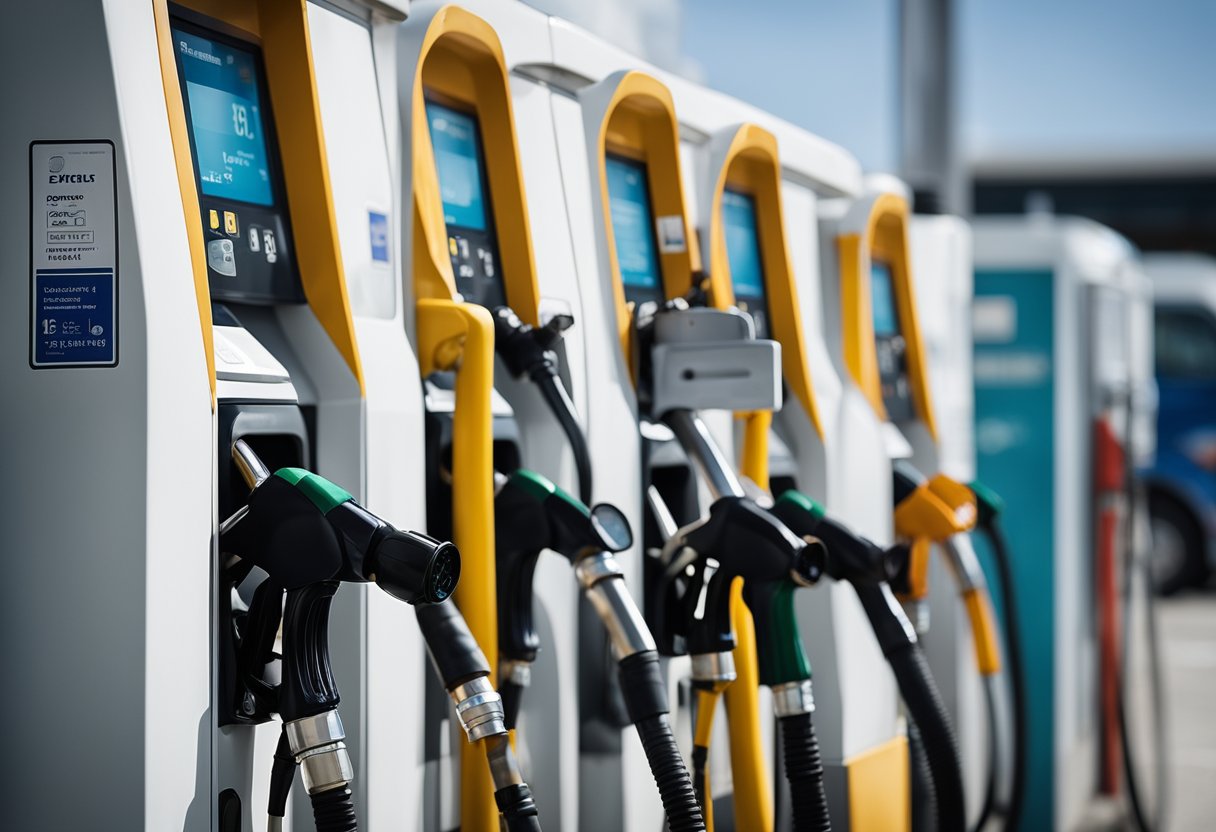How to start saving money
Lorem ipsum dolor sit amet, consectetur adipiscing elit lobortis arcu enim urna adipiscing praesent velit viverra sit semper lorem eu cursus vel hendrerit elementum morbi curabitur etiam nibh justo, lorem aliquet donec sed sit mi dignissim at ante massa mattis.
- Neque sodales ut etiam sit amet nisl purus non tellus orci ac auctor
- Adipiscing elit ut aliquam purus sit amet viverra suspendisse potent
- Mauris commodo quis imperdiet massa tincidunt nunc pulvinar
- Excepteur sint occaecat cupidatat non proident sunt in culpa qui officia
Why it is important to start saving
Vitae congue eu consequat ac felis placerat vestibulum lectus mauris ultrices cursus sit amet dictum sit amet justo donec enim diam porttitor lacus luctus accumsan tortor posuere praesent tristique magna sit amet purus gravida quis blandit turpis.

How much money should I save?
At risus viverra adipiscing at in tellus integer feugiat nisl pretium fusce id velit ut tortor sagittis orci a scelerisque purus semper eget at lectus urna duis convallis. porta nibh venenatis cras sed felis eget neque laoreet suspendisse interdum consectetur libero id faucibus nisl donec pretium vulputate sapien nec sagittis aliquam nunc lobortis mattis aliquam faucibus purus in.
- Neque sodales ut etiam sit amet nisl purus non tellus orci ac auctor
- Adipiscing elit ut aliquam purus sit amet viverra suspendisse potenti
- Mauris commodo quis imperdiet massa tincidunt nunc pulvinar
- Adipiscing elit ut aliquam purus sit amet viverra suspendisse potenti
What percentege of my income should go to savings?
Nisi quis eleifend quam adipiscing vitae aliquet bibendum enim facilisis gravida neque. Velit euismod in pellentesque massa placerat volutpat lacus laoreet non curabitur gravida odio aenean sed adipiscing diam donec adipiscing tristique risus. amet est placerat in egestas erat imperdiet sed euismod nisi.
“Nisi quis eleifend quam adipiscing vitae aliquet bibendum enim facilisis gravida neque velit euismod in pellentesque”
Do you have any comments? Share them with us on social media
Eget lorem dolor sed viverra ipsum nunc aliquet bibendum felis donec et odio pellentesque diam volutpat commodo sed egestas aliquam sem fringilla ut morbi tincidunt augue interdum velit euismod eu tincidunt tortor aliquam nulla facilisi aenean sed adipiscing diam donec adipiscing ut lectus arcu bibendum at varius vel pharetra nibh venenatis cras sed felis eget.
Fleet fuel management systems help companies track and control fuel use across their vehicle fleets. They reduce fuel costs and waste by providing accurate data on fuel consumption, making it easier to detect theft or inefficiency.
These systems often combine hardware and software to monitor fuel in real time.

By using fuel management technology, companies can improve vehicle performance and streamline operations.
Many systems offer features like secure fueling, automated reporting, and mobile app access for easier management.
This leads to better decision-making about fuel needs and maintenance schedules.
Choosing the right fleet fuel management solution can make a big difference in controlling expenses and improving efficiency.
Understanding how these systems work helps businesses save money and run their fleets more smoothly.
For more details on different options, see examples of fuel management systems and comprehensive fleet solutions.
What Are Fleet Fuel Management Systems?

Fleet fuel management systems help manage and track fuel use across a group of vehicles.
These systems ensure fuel is used efficiently, prevent theft, and provide detailed reports on fuel consumption patterns.
The technology behind these systems uses hardware and software to gather and analyze fuel data.
Core Functions and Components
Fleet fuel management systems track fuel levels, fuel consumption, and fuel purchases.
They send alerts if fuel use is abnormal or if there is suspected theft.
Key components include fuel sensors, fuel pumps with control units, and software platforms for monitoring and reporting.
Typical features are:
- Real-time fuel level monitoring
- Alerts for fuel theft or overuse
- Fuel card integration for purchase control
- Reporting tools for fuel usage trends
These systems work 24/7 and can handle unattended fueling to keep fleets running smoothly.
How Fleet Fuel Management Systems Work
Fleet fuel management systems use sensors connected to fuel tanks to measure fuel volume accurately.
When a vehicle is refueled, the system verifies the amount added and records who authorized the fueling.
This data is sent to a central software platform.
The software compares fuel used by the vehicle to its planned use, flagging unusual activity like excess idling or unauthorized fuel purchases.
It provides managers with detailed reports to spot inefficiencies or losses.
For more detail on how these systems monitor fuel inventory and status in real-time, see the Fleet Fuel Management System by Veeder-Root.
Key Features of Fleet Fuel Management Software

Fleet fuel management software focuses on tracking fuel use, managing fuel expenses, and improving efficiency.
It offers tools that help fleet managers monitor fuel consumption closely, review transactions, and get timely alerts about unusual activities or inefficiencies.
Real-Time Monitoring Capabilities
Real-time monitoring allows fleet managers to see fuel levels and consumption as they happen.
This feature uses telematics devices connected to the vehicles’ fuel tanks or engines.
It helps detect fuel theft, leaks, or unusual spikes in fuel use immediately.
With real-time data, managers can optimize routes and driving habits to reduce fuel waste.
They can also prevent unauthorized refueling by knowing exactly when and where fuel is used.
This reduces overall fuel costs and improves fleet efficiency.
Transaction Tracking and Reporting
Fuel management software automatically records each fuel transaction, including date, time, fuel volume, and cost.
It links data from fuel cards or pumps directly to each vehicle in the fleet.
This tracking lets managers generate reports that show fuel usage patterns and expenses over time.
These reports identify which vehicles or drivers consume the most fuel.
They also help spot billing errors or fraud quickly, allowing for better cost control and accurate budgeting.
Alert Systems and Notifications
Alert systems provide immediate warnings about fuel-related issues.
These can include notifications for high fuel consumption, refueling outside authorized locations, or fuel theft attempts.
Managers receive alerts via email or mobile apps, enabling fast response to problems.
Alerts can also remind drivers about maintenance or fuel limits.
This proactive approach reduces losses and keeps fleet operations secure and efficient.
For more detailed information, see fuel management systems at Geotab or explore transaction management with Fleetio.
Benefits of Implementing Fuel Management Solutions

Fuel management solutions provide clear data that helps control fuel use and drive better results.
They allow fleet managers to pinpoint key areas to improve efficiency, cut costs, and boost overall fleet operation.
This makes day-to-day management more precise and informed.
Enhancing Fuel Efficiency
Fuel management solutions track fuel consumption in real time, helping identify waste or inefficiency.
By analyzing data on fuel use, fleets can spot behaviors like excessive idling or harsh acceleration that lead to high fuel burn.
These systems often include alerts or reports to guide drivers on better practices.
Over time, this monitoring encourages consistent fuel-saving habits.
It also supports route and load optimization, lowering unnecessary mileage.
Using detailed fuel data, managers adjust schedules and routes to avoid traffic or delays.
All these steps contribute to better fuel efficiency across the fleet.
Reducing Operational Costs
Fuel is a major cost for fleets, often second only to labor.
Fuel management solutions give exact records of fuel use, reducing errors and preventing fuel theft or unauthorized refills.
They help track fuel purchases and consumption per vehicle or driver, revealing areas to cut waste.
Fleets can control fuel expenses by enforcing policy limits or optimizing fuel card use.
By improving efficiency and reducing waste, these solutions directly lower daily fuel costs.
Accurate, real-time data also aids in budgeting and forecasting fuel spending more reliably.
Improving Fleet Performance
Fuel management solutions offer insights beyond fuel use, revealing driver behavior and vehicle status.
This data helps identify training needs or maintenance issues that affect performance.
Better driver habits reduce wear and tear and increase vehicle lifespan.
Regular monitoring allows fleets to catch problems early, avoiding breakdowns or costly repairs.
Performance improves as fleets operate more smoothly, on time, and with less downtime.
Managers can compare vehicle performance and make informed decisions on fleet upgrades or replacements.
Using fuel management data, fleets optimize all operations, not just fuel, supporting a stronger, more reliable system.
For more on how these systems benefit fleets, see Top 9 Features of the Best Fleet Fuel Management Systems in 2024.
Fleet Fuel Consumption Optimization

Optimizing fuel consumption requires careful tracking and clear rules for fueling.
This helps fleet managers reduce waste, lower costs, and improve vehicle performance.
Using data and policies together creates a more efficient fuel system.
Analyzing Fuel Consumption Data
Fleet managers need to collect detailed fuel consumption information for each vehicle.
This includes fuel usage per trip, idling times, and fuel purchase records.
Comparing these data points helps identify vehicles that consume more fuel than expected.
Data should be reviewed regularly to spot trends.
For example, sudden increases in fuel use could signal mechanical issues or inefficient driving habits.
Reports can break down consumption by vehicle, driver, route, and time of day.
Key metrics to focus on include:
- Average fuel consumption (miles per gallon or liters per 100 km)
- Fuel cost per mile or kilometer
- Idle times impacting fuel use
This analysis enables targeted actions to improve fuel efficiency and reduce overall costs.
Setting Fueling Policies
Clear fueling policies help control how and when fuel is used.
These policies can include limits on fuel purchase amounts, authorized fueling stations, and scheduled fueling times.
Policies may require drivers to use company fuel cards to track transactions accurately.
This prevents unauthorized purchases and fuel theft.
Managers can also set rules to reduce idling and encourage fueling during off-peak hours to save time and money.
Training drivers on these policies ensures compliance and better fuel management.
By standardizing fueling practices, fleets maintain better control of fuel expenses and reduce waste across all vehicles.
For more detailed strategies on fuel management, consult resources on fleet fuel management systems.
Fueling Authorizations and Security

Fueling authorizations control who can access fuel and how much can be dispensed.
Security measures protect against theft and misuse.
Both are essential to keep fuel costs in check and ensure only authorized use.
Managing Fueling Permissions
Fueling permissions are set to limit fuel access by driver, vehicle, time, and quantity.
This customization prevents unauthorized fueling.
Permissions can include daily fuel limits or restrict fueling to specific vehicles.
Automation simplifies permissions management.
It assigns authorizations based on driver ID or vehicle ID, often using PIN codes or RFID cards.
This system reduces human error and fraud.
Regular updates to permissions help accommodate staff changes and shifts.
Notifications or alerts can inform managers of unusual fueling activities, adding another layer of oversight.
Integrating Fleet Cards
Fleet cards store driver and vehicle data and are a key part of fuel security.
These cards require drivers to authenticate before fueling, ensuring that transactions are linked to specific users.
Integration with fleet software enables real-time fuel purchase tracking.
It can flag attempts to exceed preset limits or unauthorized fueling times.
Fleet cards usually support multiple security features such as PIN entry, vehicle ID checks, and transaction limits.
These combined controls reduce fuel theft and misuse.
Using fleet cards also simplifies reporting, making it easier to audit fuel consumption by driver, vehicle, or location.
This improves accountability and helps with budgeting fuel costs.
For more details on these systems, see Fleet Fuel Management Systems.
Case Study: fleetwatch

fleetwatch provides a detailed approach to tracking fuel use, controlling costs, and improving fuel security in fleet operations.
Its system combines hardware and software tools that deliver precise data and help fleets run efficiently.
fleetwatch System Overview
fleetwatch uses in-vehicle fuel monitoring devices paired with software for real-time tracking. These devices measure fuel dispensed, usage, and theft.
The data is sent directly to a central platform. This system integrates with existing fleet management tools for seamless operation.
Key features include:
- Fuel flow meters installed on tanks or fuel lines
- Instant alerts for unauthorized fuel use
- Easy-to-read dashboards showing fuel consumption patterns
- Integration with vehicle telematics and GPS
The system supports multiple fuel types. It also offers data export capabilities for detailed reporting.
Fleet managers can monitor every drop of fuel. They can identify inefficiencies quickly.
Demonstrated Advantages for Fleets
Fleets using fleetwatch report greater control over fuel expenses and reduced unauthorized fuel use. The system’s instant alerts help cut down on fuel theft and data inaccuracies.
Managers can adjust routes and schedules based on real consumption patterns. Additional benefits include:
- Lower fuel costs through real-time data and waste detection
- Increased accountability among drivers via detailed fuel logs
- Enhanced compliance with fuel policies due to automated reporting
By identifying fuel-heavy vehicles or routes, managers can optimize operations and extend vehicle service life. More accurate fuel data supports better decision-making and driver performance tracking.
More about this technology is available in linked case studies such as Fuel Management: Take Control of Your Fleet's Fuel Usage and Costs.
Selecting the Right Fleet Fuel Management Service

Choosing a fleet fuel management service means focusing on the provider’s capabilities. Ongoing support after installation is also important.
The decision should weigh the reliability of the service platform and its features. Consider the type of help available after installation.
Evaluating Service Providers
When evaluating providers, check if the service offers accurate fuel tracking through telematics and automated reporting. The system should provide real-time data to monitor fuel consumption and detect irregularities quickly.
Providers that integrate easily with existing fleet software improve efficiency. Look for features such as route optimization, driver behavior analysis, and fuel card management.
Security measures like fraud detection are also key. Comparing pricing models helps too.
Some providers charge a flat fee, while others use a per-vehicle rate. Companies should ensure the service fits their budget while offering comprehensive coverage.
Assessing Support and Maintenance
Support quality is critical for uninterrupted fuel management. Reliable services offer 24/7 technical support and training resources.
Fast response times are important. Regular software updates keep the system secure.
Maintenance plans might include remote diagnostics. Some providers also offer on-site assistance.
A clear escalation process helps with urgent issues. Transparent communication can improve satisfaction.
For more details on selecting a service, see this guide on fuel management system tools.



